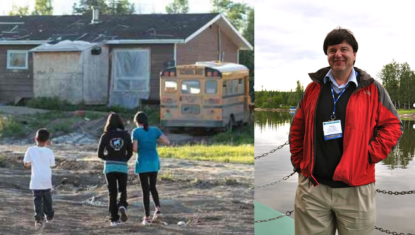24/08/2022
Ottawa, Ontario — Wednesday August 24, 2022

The vital role indoor air quality plays on one’s health has become an important topic during the COVID-19 pandemic. For Tom Kovesi, Investigator at the CHEO Research Institute, indoor air quality of the homes of Indigenous children in Canada has been a research passion for more than a decade.
In his most recent work, Kovesi led a joint study with the Sioux Lookout Meno Ya Win Health Centre, Sioux Lookout First Nations Health Authority and the Nishnawbe Aski Nation, which documented indoor air quality and housing characteristics in four isolated First Nations communities in northwestern Ontario. Published in the Canadian Medical Association Journal, the study found frequent rates of respiratory infections in children under three years of age and that high rates of wheezing in this age group was related to poor housing conditions. The study found that 25% of children involved required medical evacuation for respiratory illness, with just over 20% of children admitted to hospital during the first two years of life.
Researchers documented the extent to which many homes in the Sioux Lookout Region, north of Thunder Bay, ON, did not meet even minimum guidelines. They quantified the interior surface area of mould, monitored indoor air quality for three to five days in main living areas and conducted other detailed analyses, such as dust mite concentration and contaminants from wood smoke that could affect respiratory health.
“Inequalities and underfunding have resulted in houses that are poorly constructed and of insufficient size, with inadequate funding for maintenance and upkeep,” said Kovesi.
This important research helps inform the broader socio-economic challenges that need to be addressed in order to improve the overall health and wellness of Indigenous communities in Canada.
“Increased housing stock appropriate for local geographic, climatic, and cultural needs should be matched to solutions that are First Nations led and governed. Economic opportunity, elimination of food insecurity, and potable water will allow communities and residents to apply more resources to the upkeep of existing houses,” the researchers concluded.
Read the full 2021-2022 CHEO Research Institute Annual Report.
